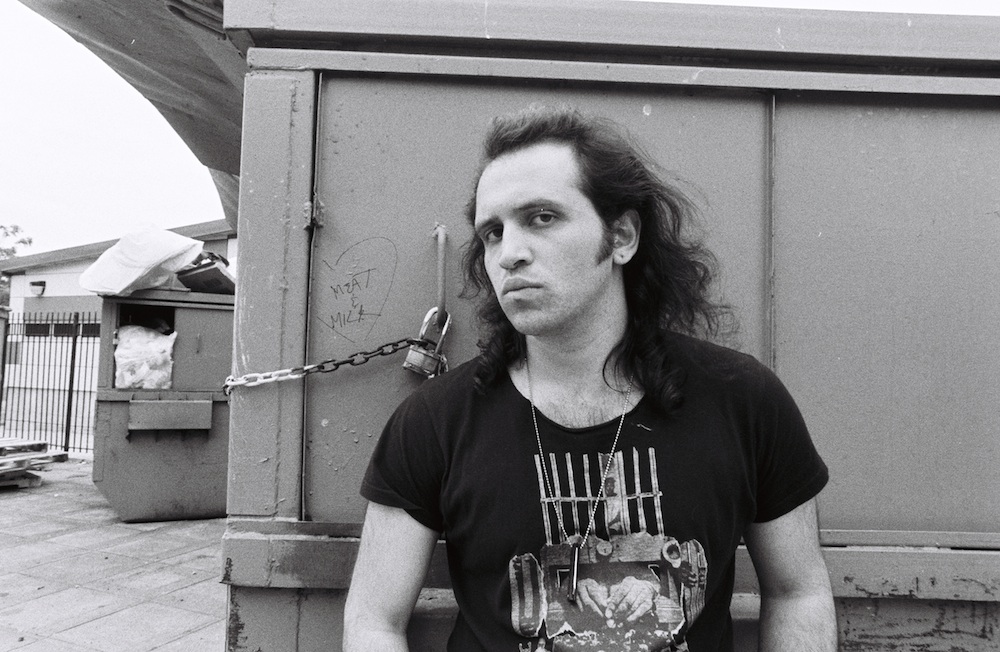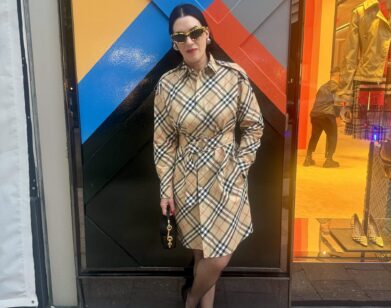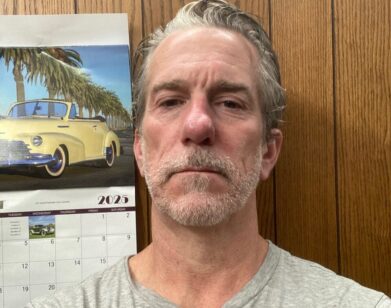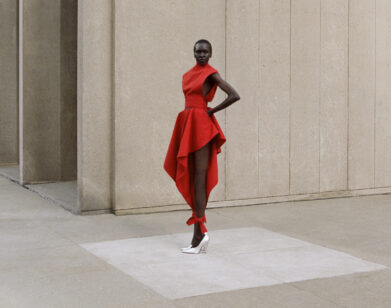Fury Young

ABOVE: FURY YOUNG. PHOTO COURTESY OF BRIAN GOODWIN.
Out earlier this month, Meat & Milk (Lit Riot Press) is Fury Young’s first collection of poems. Selected for thematic and chronological purposes from the hundreds that Fury has written over the past several years in his personal notebooks, the poems in Meat & Milk loosely narrate the author’s coming-of-age. Young begins the journey with “By The Dumpster,” as a pessimistic yet inspired young man. Throughout the collection, he struggles with his social anxieties, loneliness, love, and the ever-relatable search for something real and meaningful in life. By the last poem, “Meat & Milk,” Young has grown more comfortable in his own skin; while he still struggles with familiar, life-long problems, he’s since discovered activism as an important force and inspiration in his daily life.
Currently based in Bushwick, when not writing, Young works as a carpenter, and continues to lead the “Die Jim Crow” art and music project he founded four years ago, providing a creative outlet for currently and formerly incarcerated artists and musicians of African American descent.
ARTHUR IVAN BRAVO: Hey, Fury. Thanks for doing this. First of all, I guess I’d like to ask: How’d you get that name?
FURY YOUNG: Meet me in a bar and ask me there, if you want to find out. Hopefully I’ll be in a good mood.
BRAVO: Tell me a little bit about yourself, in your own words?
YOUNG: I’m a born-and-raised New Yorker whose family goes back a few generations in the Lower East Side. I’m a poet; I produce music. I’m producing a concept album called Die Jim Crow—that’s my main side project outside of my job as a carpenter, but my poetry is something I do to stay sane, to mentally survive, it’s kind of a compulsion.
BRAVO: Where’d these poems come from? What’s your relationship to poetry been like throughout your life?
YOUNG: I began writing poetry around the time I got into activism, when Occupy Wall Street started, and this book, Meat & Milk, is a culmination of poetry I’ve written over the last five years. My relationship with poetry is a funny one; my first memory of writing a poem was in a high school class for an assignment. I wrote it real fast, thinking of it as a mockery, but even though I think my teacher hated me, I got a good grade. But years later, I just started writing again [and] it picked up when I moved to L.A. to try to become a film director. Around that time, I was away from home, and friendless, and then I got involved with Occupy. I’d say the birth of me writing poetry coincided with that.
BRAVO: Something I really liked in reading your poems is the very direct way you address the real, immediate, everyday, and ordinary as it happens. In writing your poetry about that constantly ephemeral experience, you’re bridging the preconceived divide between the two—things so ordinary and relatable to anyone, are connected with the institutions of literature and writing.
Also, I can feel time in your poetry. It feels like you experienced something and, as soon as you got home, you wrote about it. It’s still fresh, swirling in your mind, you’re catching it maybe before it disappears forever, or, like happens to me, you might unexpectedly care to remember years later.
YOUNG: I never thought too much about it, but a lot of my poems I write actually during an observation, or right after. There’s a poem called “J Beauty Girl,” and it’s literally me on the train seeing this beautiful girl across from me late at night, and there’s no way I’m going to talk to her, and it’s my way of talking to her—because of society, or fears in my head. There’s another poem called “Jive,” and it’s the same thing, but instead of a woman I’m attracted to, it’s something a little different—there’s an older black woman that just smiles at me, she has a real sweet vibe. It’s literally just me being there and writing that all down—it’s poetry in real-time.
Other times I write down the feeling shortly afterwards. It’s very hard for me to write snippets here and there and piece them all together, but that will happen occasionally.
BRAVO: Possibly my favorite poem is the first one, where you’re by the dumpster. It’s very relatable. I spent my first year of college far away from home, in California. I was in art school, and in the back of the building, there was a dumpster. We all did our fair share of dumpster diving as all good art school students do, but many days I would stay behind. I didn’t know anybody—it was a kind of fucking commuter school—so I’d sit on the curb, acknowledge the company of the dumpster, feeling alone and too anxious to get back in the building for class.
YOUNG: Yup, that’s the vibe. It was one of the first I ever wrote. I was going to Los Angeles City College at the time. It’s about such obvious things that a poet might write about, like being alone, but it’s my style of poetry. Sure, I’m alone and this and that, but I’ve found comfort in something really human that might not be a physical, mental friend that talks to me, but it is a physical friend that doesn’t talk to me, I suppose.
BRAVO: What inspires you to write immediately? How would you describe your poetry?
YOUNG: It’s a mix of a lot of things, stuff in life I can’t make sense of, stuff you’d do in society that people would look at funny. Like, what if you just wanted to steal someone’s sandwich on the street? Or start actually howling at the moon? Poetry lets me do that; it’s freedom. So I write a lot about feelings I can’t act on. There’s a line in one of the earlier poems in the book that says when I write a poem, there’s a revenge for things undone. All the life that wants to come out in the daily relay race, here’s something to that—sometimes it’s about capturing beauty, pain, restlessness; it’s about capturing feelings, and doing it in an aggressive kind of way. I would describe my way as aggressive, maybe beautiful, or empathetically aggressive. But I don’t know, it’s hard to talk about your own poetry, you just do it, and sometimes it’s not empathetic at all.
BRAVO: Who are all these people that appear in your poems by name? Tell me about Pridgen? He seems to have been a significant person in your life.
YOUNG: They’re all people that I know. Pridgen was a really close friend and odd mentor of sorts. He was an OG, a dude from the neighborhood who you kicked it with. He was a resident at a nursing home for people with HIV/AIDS and he was HIV positive. We became really close and I made a movie about him. And we remained friends until he passed away in January of last year. He also was a black man who had been in prison, and in some way, that had a big impact on me later in life, as these poems will show, in that they allude to and discuss the Die Jim Crow project I’m working on.
Deonte is not, but he’s based on a real person. A516-198 is based on a close friend.
BRAVO: The subway keeps popping up in your poetry, like you’re obsessed with it—the people, the experience, that specific environment. What do you get out of writing about people you meet, perhaps only see, for such short moments of your life? And why does the subway keep popping up in your poetry? You also write a lot about women, sex, shyness, loneliness, social anxiety.
YOUNG: I am obsessed, puzzled, disturbed, and excited by the subway indeed. It’s a total free-for-all. It also in some ways feels as true to life as it comes. And it feels strangely existential, especially the platforms—if you do busking, you’d understand. Playing on the platforms feels like a city version of Waiting for Godot, with people coming and going, and you’re in one place watching. But there’s so much unspoken or undone energy on the subway, which people do not share, including myself, and that fascinates me and can sometimes make me feel cowardly. So I write about it, sometimes I act on it.
They’re all sort of connected, but obviously a poet will write about their sexual partners or lack thereof. About social anxiety, I’m a young 20-year-old in New York, so I was definitely going to write about being socially anxious or other related issues.
BRAVO: Lastly, is there anything you want to communicate to the reader of your poems?
YOUNG: Well, in the modern world of such short attention spans, it’s hard to ask for much from an audience, but I hope Meat & Milk can rearrange that for the reader, pull them in, make them feel something. For them to find realness in it, as Spoon Jackson would say.
MEAT & MILK IS OUT NOW.






